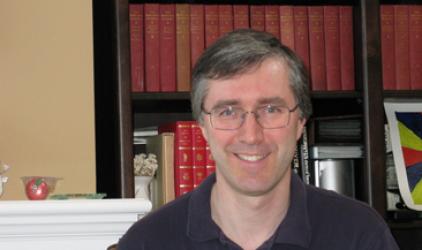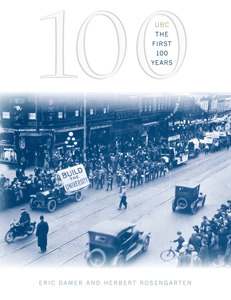History of Education in British Columbia (Eric Damer)

Although I had worked as an historical interpreter in park and museum settings for many years, my “historical consciousness” came a little later in life. As a graduate student in the 1990s, I had no money for research, so I opted to delve into the nearby archives at the University of British Columbia. What followed was a sort of epiphany. In piecing together my first real history paper based on primary sources, I realized that history was not about “one damn thing after another” but an argument about who did what, why, and with what consequences. Since I was studying the institution in which I was currently a student, I discovered that the history of education was not about what had happened to someone else, but about what had happened to me. My doctoral work, which also researched an aspect of UBC, furthered my personal interest when I inadvertently discovered some information about my father, an alumnus. More specifically, I began to see just how family background played a role in one’s own educational history.
Since those years as a student, I have continued researching the history of education in British Columbia, with a special interest in the history of UBC. People are often amused – or amazed – when I tell them that I am a “free-lance historian,” but this is true! Although I also research, write, and edit for a range of clients in other subject areas, I remain a student of educational history.
My interest in UBC has had a couple of major emphases. The first is to tie the university to the broader social history of British Columbia more generally. If nothing else, the university is a creature of the province, subject to the predilections of the government in power and its supporters. The second is to show that UBC (like other universities, of course) is no simple input-output institution that produces well-educated graduates on command. Rather, the academy is a complex, political environment that can produce successes, failures, heroes, victims, and everything in between. What goes on at UBC and other universities should interest us all. While preparing the recently released centenary history of UBC, I found it particularly satisfying to revise the university’s fiftieth anniversary history (published in 1958) by adding some sober perspectives to its triumphalist rhetoric.
After teaching educational history a few times at UBC to aspiring  teachers, I noticed that there was relatively little published work on the influence the university has had on the wider school system. As an interim measure, I recently wrote a short piece outlining how UBC’s early teacher training program fit the “progressive” educational reforms of the 1920s. The paper, due for publication in British Columbia History, edited by THEN/HiER Director Penney Clark, clearly places the new program in line with the efficiency-minded reformers who wished to use schools to create a well-ordered, differentiated, and deferential workforce for social and economic prosperity, devoid of the “feebleminded.” Another ongoing project of mine (with a colleague) is to fill in another gap in our understanding of higher education in British Columbia by researching more thoroughly an early college in New Westminster.
teachers, I noticed that there was relatively little published work on the influence the university has had on the wider school system. As an interim measure, I recently wrote a short piece outlining how UBC’s early teacher training program fit the “progressive” educational reforms of the 1920s. The paper, due for publication in British Columbia History, edited by THEN/HiER Director Penney Clark, clearly places the new program in line with the efficiency-minded reformers who wished to use schools to create a well-ordered, differentiated, and deferential workforce for social and economic prosperity, devoid of the “feebleminded.” Another ongoing project of mine (with a colleague) is to fill in another gap in our understanding of higher education in British Columbia by researching more thoroughly an early college in New Westminster.
My interest in education and history is coming together in a new way for me this March. Through Simon Fraser University Continuing Studies, I will be facilitating a course in Writing Local History. The course name and the term “facilitating” were deliberately chosen to emphasize the practical nature of the course to encourage people to create their own evidence-based history. It will be less about learning what others have said about the past – although some amount of this cannot be avoided – and more about what course participants think about an aspect of the past. We’ll look at sources of evidence and ways to organize it, common explanatory categories, possible theoretical perspectives and debates, and tips for putting words on paper or screen. It is my hope that people will leave not only with a good start on their own research, but also a healthy appreciation for history as relevant to the present and future. I am not aware of any similar programs offered in the Metro Vancouver area that are quite like this; it will be an interesting experiment!
- Se connecter ou créer un compte pour soumettre des commentaires
- Français

